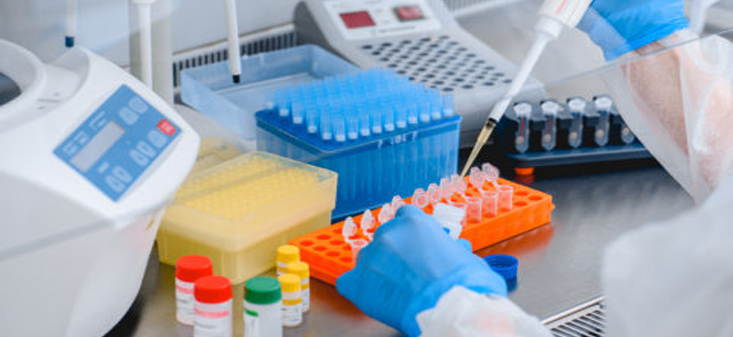
Molecular tests developed for diagnostic use can either detect targeted genetic material—like nucleic acid—or identify specific protein signatures—like MALDI-ToF. A nucleic acid amplification test (NAAT) is a type of molecular test that may use polymerase chain reaction (PCR) (or similar technologies such as NASBA, deep sequencing, etc.) to amplify a specific sequence of nucleic acid. Catalyzed by rapid temperature cycling, PCR is a chemical reaction that exponentially amplifies the targeted nucleic acid to detectable levels. One cycle of PCR doubles the amount of genetic material in the starting sample. Running multiple cycles of PCR produces millions to billions of copies. A molecular PCR test can detect targeted nucleic acid even if it is only present in small amounts in the patient sample.
NAATs have a wide variety of useful applications in laboratory medicine, including infectious disease diagnostics, oncology, and genetics. For example, an oncologist could use molecular testing of nucleic acid to help tailor cancer treatment based on the specific genetic abnormalities detected in a patient’s tumor. Similarly, an infectious disease physician could use a NAAT to rapidly determine the pathogenic cause of an infection and identify genetic markers that may indicate antibiotic resistance, helping them optimize treatment as well. A molecular test can also detect chromosomal abnormalities or changes that may elevate a patient’s risk of developing a particular disease or disorder.
When it comes to infectious disease diagnostics, a NAAT can provide laboratories with critical advances in accuracy and speed compared to traditional standard of care methods, such as culture. In turn, laboratories that use molecular testing solutions can help healthcare providers get the answers they need sooner to optimize treatment.